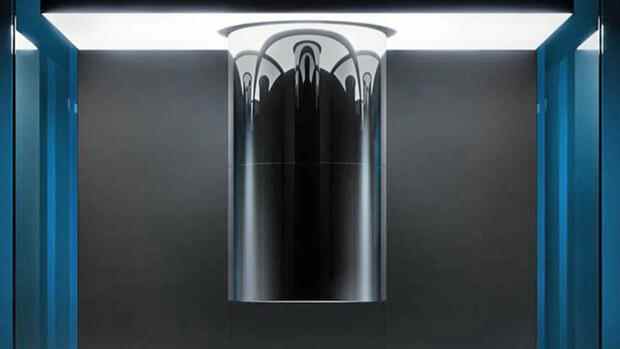Stuttgart Bosch is cooperating with the US technology group IBM in quantum computing. “The aim is to use material simulations using quantum computing to replace precious metals and rare earths in CO2-neutral drives within the next ten years – in electric motors as well as in fuel cells,” said Bosch boss Stefan Hartung on Wednesday at the digital in-house exhibition Connecting World in Berlin.
The cooperation gives Bosch access to the 20 most powerful quantum computers from the IT giant.
The new cooperation is part of the digitization offensive of the new Bosch boss Stefan Hartung, who has been in office since the beginning of the year. In the next three years, the foundation group wants to spend ten billion euros on digitization and networking. However, Bosch does not want to build its own quantum computer with this budget, although the funds would be sufficient.
According to its own information, the foundation group brings its experience in simulating materials that are particularly important for industrial applications to the IBM cooperation. Bosch hopes for further technical advances in quantum technology.
Top jobs of the day
Find the best jobs now and
be notified by email.
With the help of future even more powerful quantum computers, statements about the properties of new materials could be made. This is too time-consuming and too complex for conventional computers, says Bosch. It’s all about simulation and artificial intelligence.
Bosch is one of the ten companies that formed the Quantum Technology and Application Consortium (Qutac) a year and a half ago to develop “usable industrial applications” for the promising technology. The aim is to create the basis for “a successful industrialization” of quantum computing. In addition to Bosch, the group includes BASF, Deutsche Telekom, SAP, Siemens and VW.
In the future, quantum computers could be able to draw conclusions about certain material properties in a fraction of the time it takes conventional computers today. In the new cooperation, experts from Bosch and IBM will jointly develop quantum algorithms with a view to industrial use cases.
>> Read also: With the “ion trap” for the quantum computer – start-up Eleqtron wants to compete with Big Tech
The cooperation gives Bosch access to the supercomputer in Ehningen near Stuttgart, which IBM built with the Fraunhofer Institute. All project and user data processed there remain in Germany at all times and are subject to German data protection regulations.
“We share our experience in simulating materials for very specific fields of application with IBM and in return we get a deeper insight into the performance and areas of application of quantum computers and their hardware,” emphasized Bosch boss Stefan Hartung next level and give us a competitive advantage on an international level.”
In addition to new materials for fuel cells, Bosch is also interested in new magnets for electric motors that are more compact, lighter, more efficient and more readily available. Compared to rare earths, new materials are said to be more environmentally friendly.
Boston Consulting estimates the market for quantum computing software at $850 billion
When it comes to software for quantum computers, science and industry in Germany are still considered competitive with the USA and China. Market research institutes see great potential in the technology. The Boston Consulting Group estimates the market volume in the field of quantum computing, including new products and services, at up to 850 billion US dollars over the next 15 to 30 years.
According to Bosch, the forecasts for the field of quantum sensor technology are also promising: McKinsey expects the market volume to grow to up to seven billion US dollars in the coming years.
“Quantum technologies are crucial for Europe’s technological sovereignty. The important thing here is that we don’t leave it to other regions alone,” said Bosch boss Hartung. To ensure that Germany does not fall behind, the federal government is funding the development of quantum technology with two billion euros. The program was launched under former Chancellor Angela Merkel.
Around 30 experts currently work at Bosch in the fields of quantum sensors and quantum computing. Since the beginning of this year, a start-up from the group has been pushing ahead with the commercialization of quantum sensors. Bosch has been researching in this area for years. Corporations all over the world are dealing with this topic of the future.
Swabian medium-sized companies such as Trumpf, Sick and Festo are also currently developing powerful quantum sensors in cooperation. Trumpf is also working in his start-up on a photonic quantum chip that transmits data via light frequencies and that can be used to supplement conventional computers so that they can calculate special tasks that were previously too complex for conventional computers.
Quantum sensors measure 1000 times more precisely
Similar to quantum computers, quantum sensors also have immense potential. Compared to conventional MEMS sensors (micro-electro-mechanical system), they achieve a much higher level of precision. In the foreseeable future it will be possible to use them to achieve a measurement accuracy that is 1000 times greater.
In medicine, for example, quantum sensors can help in the future to diagnose neurological diseases such as Alzheimer’s more precisely and easily. They are so sensitive that they can record nerve impulses and use them to control medical prostheses. In addition, they enable virtual realities through control purely through thoughts.
More: Entrepreneur Peter Leibinger – “Quantum physics will change the way we think”

